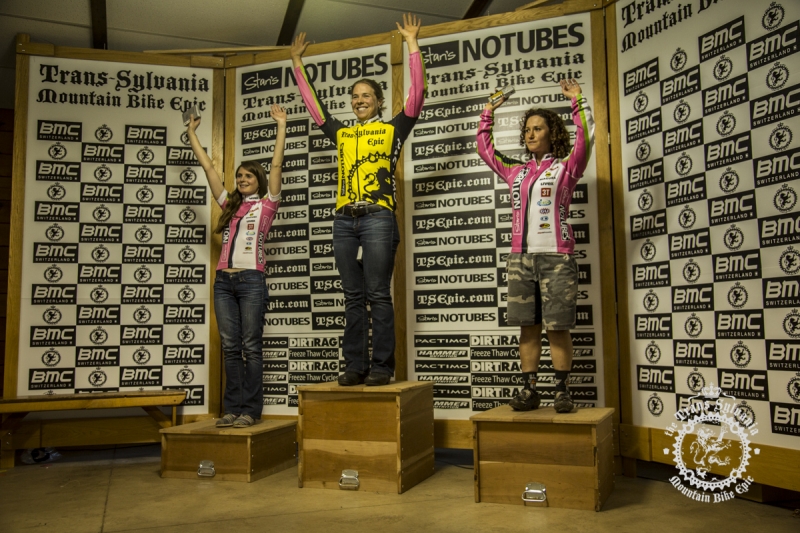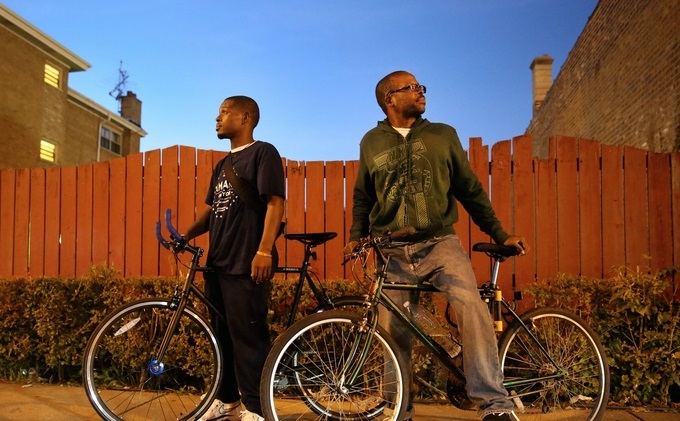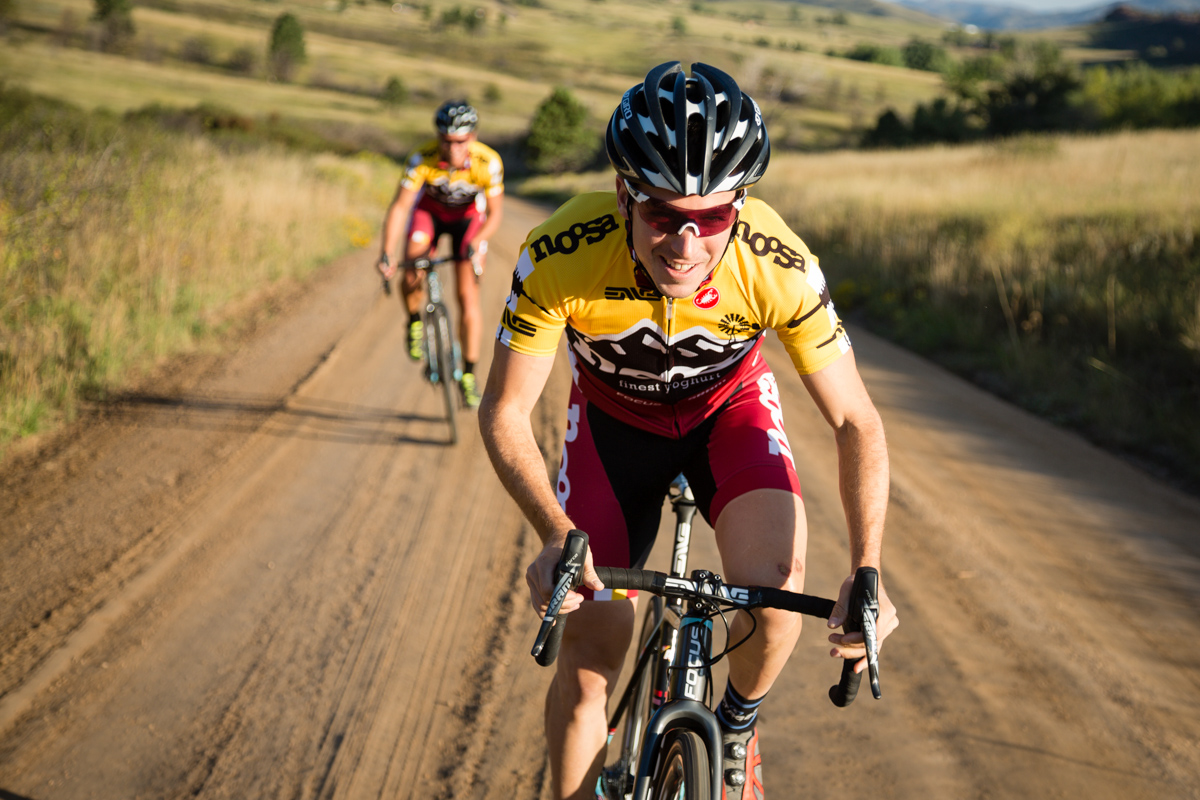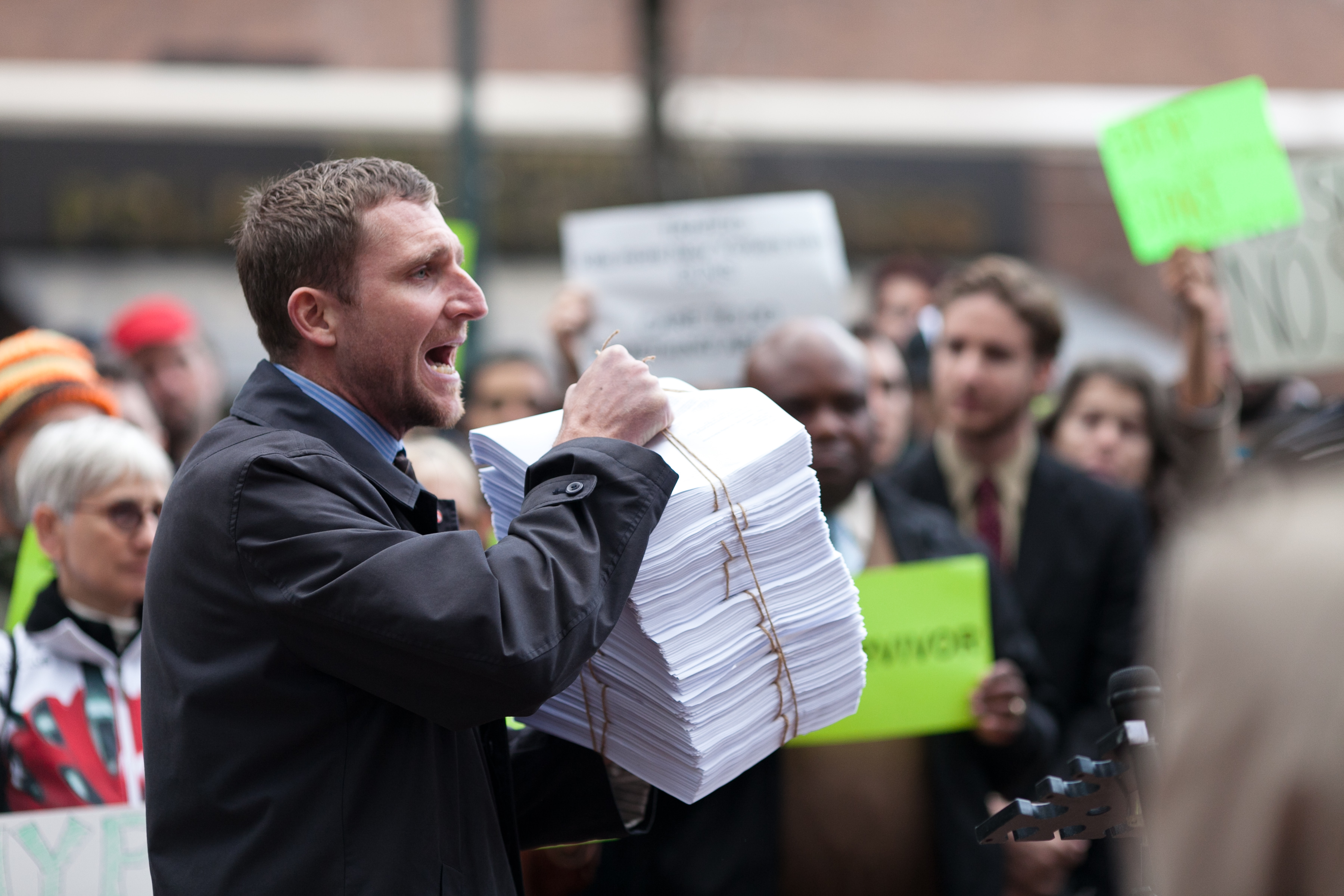
Amanda Carey atop the podium at the 2013 Trans-Sylvania Epic. Photo via Trans-Sylvania Epic.
Amanda Carey is Newton’s First Law personified. She started moving (and moving fast) a long time ago and seems incapable of stopping. Since college she’s been a Jackson Hole ski bum, land conservationist, bike and pedestrian advocate, professional mountain biker and cyclocross racer, coach, and Executive Director of a mountain bike advocacy nonprofit. Often times she was doing a few of those at any given time. As a pro mountain biker she focused her energy on 100-milers and multi-day stage racing, notching wins at the Breck Epic, Trans-Sylvania Epic, and Pisgah Stage Race and earning multiple National Ultra Endurance series overall titles. In December 2014 she started her new role as Executive Director of Mountain Bike the Tetons. It is perhaps unsurprising that we had lots to talk about. I spoke to Carey about her years as a professional racer, the appeal of endurance racing, her new life as a mountain bike advocate, the major access hurdles mountain bikers still face (and fat bikers are starting to face), and much more.



